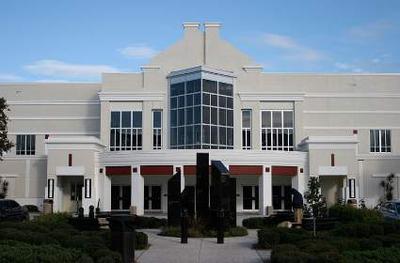Paying on Student Loans While Enrolled in College
by Gloria
(Florida, USA)
Paying on your student loans while still in college can sometimes be a hardship. One method that I've found to be helpful and proven beneficial is to continue making regular payments or at least the accrued interest on a bi-weekly or monthly basis.
Also, paying one additional payment per year will drastically decrease your student loan principal over your repayment period.
Utilizing any of the aforementioned methods will reduce the principal and payment amount once you have completed your degree program.
Newly graduated students depending upon their career choice and salary will have many other expenses that are a part of independence and adulthood, therefore starting with a lower principal balance will ensure that payments are manageable.
Comment from your friendly team at College Financial Aid Advice
Thank you Gloria for some excellent advice on paying on student loans while still in college. The sooner you can pay, the better, as it will reduce your overall payments and your expenses will go up later. Best of luck.
There are also some programs for Student Loan Debt Forgiveness and Consolidating Student Loans . Check these out to see if you qualify.
Only Take What You Need
by Holly
(Minnesota)
When I began my college career I was unsure of the unknown expenses there might be. When I received my Financial Aid Award letter I took the extra money that wasn't need to pay for school and opened a savings account. I kept the extra money as a cushion in case I needed it for an expense I had not foreseen. I promised myself I would never use the money in this account for anything except school expenses. I know of many students who use this money to go on vacation for spring break, to go shopping, etc. Once I completed my first year I took the money in my savings and paid it back so that my borrowed amount was reduced. I followed the same rule throughout my college career and it has reduced my student loans by several thousand dollars.
Comment from your friendly team at College Financial Aid Advice
Excellent advice. Only take what you need for student loans.
The Struggle of Paying Off Student Loan Debt
by Wendy
(Alabama, USA)
I started college in 2003 and most of my college expense was paid through a Pell Grant. Pell grants do not have to be paid back. I was a single parent who worked while attending college. I had my own home which comes with financial obligations. I requested a loan to cover the portion of my tuition and book expense that was not paid by grants.
Some of the money that I received through student loans was use for various things that I really did not need. Many people find it difficult to pay back the loans after graduation because they don’t find gainful employment, they have other financial obligations unrelated to school, and others struggle because of the amount that they received. I believe Student Loans should be a last resort because of my personal experience with struggling to pay the student loans back.
Most people don’t start out working a job that pays a salary that compensate for having a college degree. After I graduated and obtained my undergrad degree I started working a job in Alabama that paid $7 an hour. This job did not require a Bachelor’s Degree. I had little knowledge regarding what jobs paid well and would afford me to make payments over the requested amount in order to pay the student loan off and save in interest charges.
Recent college graduates can’t afford to pay the student loan and ends up sacrificing other things in order to pay back student loan debt. As young adults we strongly desire to live on our own and in doing so we create other financial obligations. Most of us can’t afford to live on our own and pay large student loan payments. Some college graduates have a family before attending college and this creates a bigger struggle as it relates to paying back student debt. If at all possible students who can’t afford to live on their own and pay student loan debt should consider avoiding student loans or staying with their parents until they can afford to pay all financial obligations.
Tuition expenses are steadily on the rise and most people take the easier way out and pursue loans instead of scholarship. It’s easier to get into debt than it is to get out of it. In conclusion I hope through reading this and hearing about my struggle to pay off student loan debt you will learn from my mistake and consider applying for scholarships, parents should start saying money for their children education, and also students should pursue part-time work and pay as much as they can to avoid student loan debt.
Read more College Financial Aid Tips from other students and parents who have been through process.
Comment from your friendly team at College Financial Aid Advice
Thank you Wendy for sharing your story. Your statement "It’s easier to get into debt than it is to get out of it" is so true. Everyone should complete their FAFSA or Free Application for Federal Student Aid because it is the best way to get financial aid for college, including scholarships, grants, work-study and low-interest federal loans. It is also helpful to apply for outside scholarships, but some of those can be very competitive.
Some of our readers have shared some very creative solutions to paying for college. Check out their stories at College Financing Tips. Good luck to you.
Pay Off Student Loans
by Jadda
(Arkansas, United States)
How to pay off student loans is a very good question that most college students need to know. There are three important points that will help a college or graduate student with paying off their loan and they are: the due date, payment amount, and loan amount. And keep in mind don’t borrow any more money then you need to borrow. The less you borrow the less you have to payback.
My first important point is the due date. When it is time to start paying back the loan, see if you can set your due date away from your other bills, so they are not all due at the same time. You don’t want to be stressed out each month when your loan payment is due.
The second point is the payment amount. Your payment amount depends on how much you borrow, and the interest on the loan. So remember the less you borrow the less your monthly payments will be.
The third point is how much money you borrowed from the bank. Once you have received all the free money you can get, then you will know how much money you would need to borrow. Remember borrow only what you need. When you graduate you don’t want to be in a lot of debt.
It is very important to start making payments on your loan as soon as possible. The faster you pay off the loan the less money you would have to pay on the loan because of the interest build up. Also you should try making extra payments on your loan, even if it’s not a full payment. And when you make that extra payment be, sure to tell them to apply it to the principal of the loan. If you apply this information to your student loan, your loan will be paid off way ahead of schedule. This information is not only just helpful for student loans but, it could help you with future loans; like to pay for a house or a car.
Read more tips on College Loans for Students .
Comment from your friendly team at College Financial Aid Advice
Thank you Jadda for your tips to pay off student loans. Anyone who takes out a student loan should consider your points carefully. Best of luck to you.
More Information on Pay off Student Loans for College
Easy Scholarships
Submit your entry in our College Essay Contest:
To share your entry in our scholarship contest, just click here.
Welcome!
Welcome to College Financial Aid Advice, a website full of information on scholarships and grants, student loans, and other ways to save money at college.
Important Things to Do
Scholarships for 2024 - 2025 - It is never too early or too late to work on your scholarship searches. If you are part of the high school class of 2024, you should work on your scholarship and college search now. See our list of Scholarships for High School Seniors
FAFSA - The official 2024 - 2025 FAFSA is available now. FAFSA.
College Financial Aid Tips
Scholarship Lists An overview of the different types of Scholarship Money for College.
Grants Learn more about grants, the other free money for college.
Need Tuition Help? Reduce the cost of tuition with these college Tuition Assistance Programs.
Tax Credit Claim the American Opportunity Tax Credit.
College Savings Plans Save money for college with these College Savings Plans.
Need a Student Loan? Yes, you qualify for these college Student Loans.
Popular Scholarship Searches
Scholarships for High School Students




